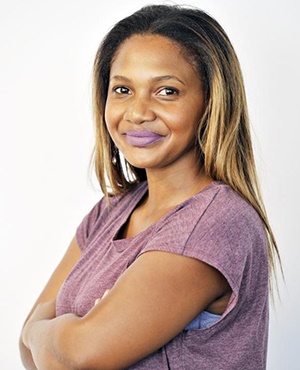
Woolworths appears to be using its Own Your Fit campaign to pat itself on the back for doing what it should have been doing all along – producing clothes that fit all figures, writes Rhodé Marshall
These days most major brands attempt to be more inclusive and body positive. They are scrambling to appeal to women who aren’t a size zero.
Which means we should probably call out those brands that pay attention to the body positive movement only as part of a false feminism attempt. But we should also acknowledge their tiny steps in the right direction.
Retailer Woolworths recently launched its Own Your Fit campaign.
“The Woolworths Own Your Fit campaign is all about self-love, self-worth and self-acceptance. It reiterates that no matter your shape or size, your body is beautiful and deserves to be celebrated,” its press release reads. But for shape and sizes of the campaign, it uses only plus-size models.
By doing so, everything the campaign represents about self-love, self-worth and self-acceptance is wrong. It’s offensive at best and just nonsense.
Whatever your shape, everyone deserves great support. Our bras come in a range of sizes and nude shades and are comfortable as they are beautiful #OwnYourFit > https://t.co/CVzEPv0XUk pic.twitter.com/snDWy3eKvu
— Woolworths SA (@WOOLWORTHS_SA) October 18, 2018
Brands should mirror the direction in which people are advancing and take that message forward. Instead we have become accustomed to brands setting false trends and most of us follow these blindly.
What Woolworths is doing specifically with this campaign is to segregate women of different sizes through its message.
It is using young plus-size models to front the campaign, putting them in granny-esque underwear and marketing it as sexy lingerie.
Young (and not so young) women who have fuller figures want to be considered from the conception phase of the garments; they should be treated – and included – in the same way as the women who are skinny and “fit” the brand.
We’re in Africa. Most of us have big boobs, a tiny waist with a mkhaba and large hips. It’s simple.
But this campaign still divides body types.
My colleague – a tiny size 26 – struggles with self-love, self-worth and self-acceptance. But Woolworths seems to believe the affliction affects only plus-size women.
She and women like her can benefit from this message, too, but because society and brands treat them as the acceptable ones, this campaign perpetuates a stereotype.
Why can’t Woolies show us diverse body sizes without insinuating that fuller-figured women are insecure? We’re all insecure at times.
Why can’t fuller-figured women just be part of a “normal” campaign, such as Bonang Matheba’s Distraction. Her entire campaign is sexy, from the garment’s design to how the line is marketed.
Woolworths appears to be using its Own Your Fit campaign to pat itself on the back for doing what it should have been doing all along – producing clothes that fit all figures.
How can women learn to love their bodies if they are treated differently?
I’m not saying shut down the conversation. I’m simply pointing out that the Woolies’ campaign is out of touch and has no understanding about how most, if not all, women feel about their bodies, whether slim or fuller-figured.
“Great fitting lingerie makes you feel good and boosts confidence from the inside out.” Well, not if it’s ugly and still regards larger women as not worthy of lace and fancy design. The truth is that this campaign’s perhaps unintentional and ignorant separation of actual body types – women of all shapes and sizes – focuses on what women look like, what makes them different, instead of helping to make all women feel beautiful and sexy about themselves.
The bottom line is that consumers can see through the crap. Brands need to be meaningful and sensitive to the human experience, and fully realise their role in the wider cultural change.
It’s simple. Find a purpose for the brand that unites instead of divides.
 |
| ||||||||||||
| |||||||||||||




 Publications
Publications
 Partners
Partners








